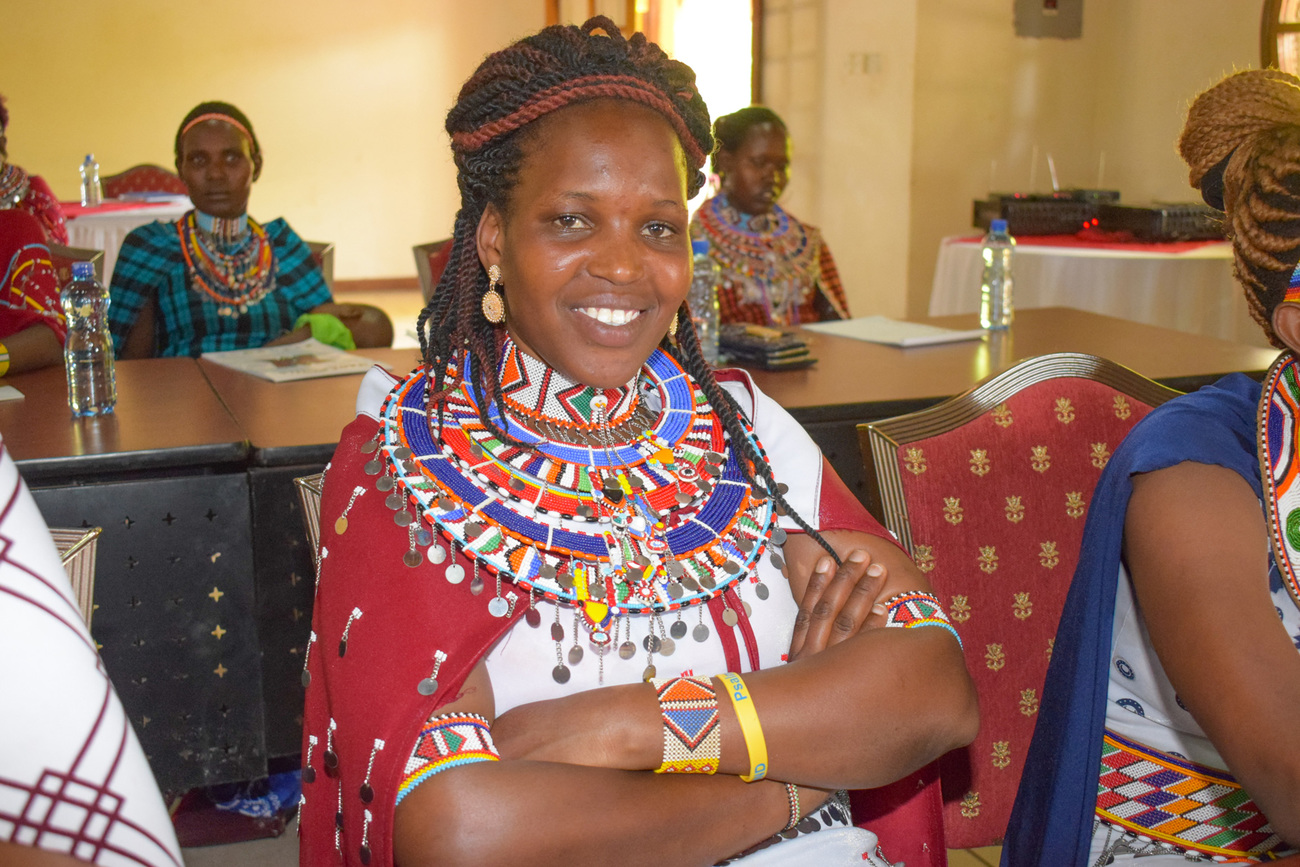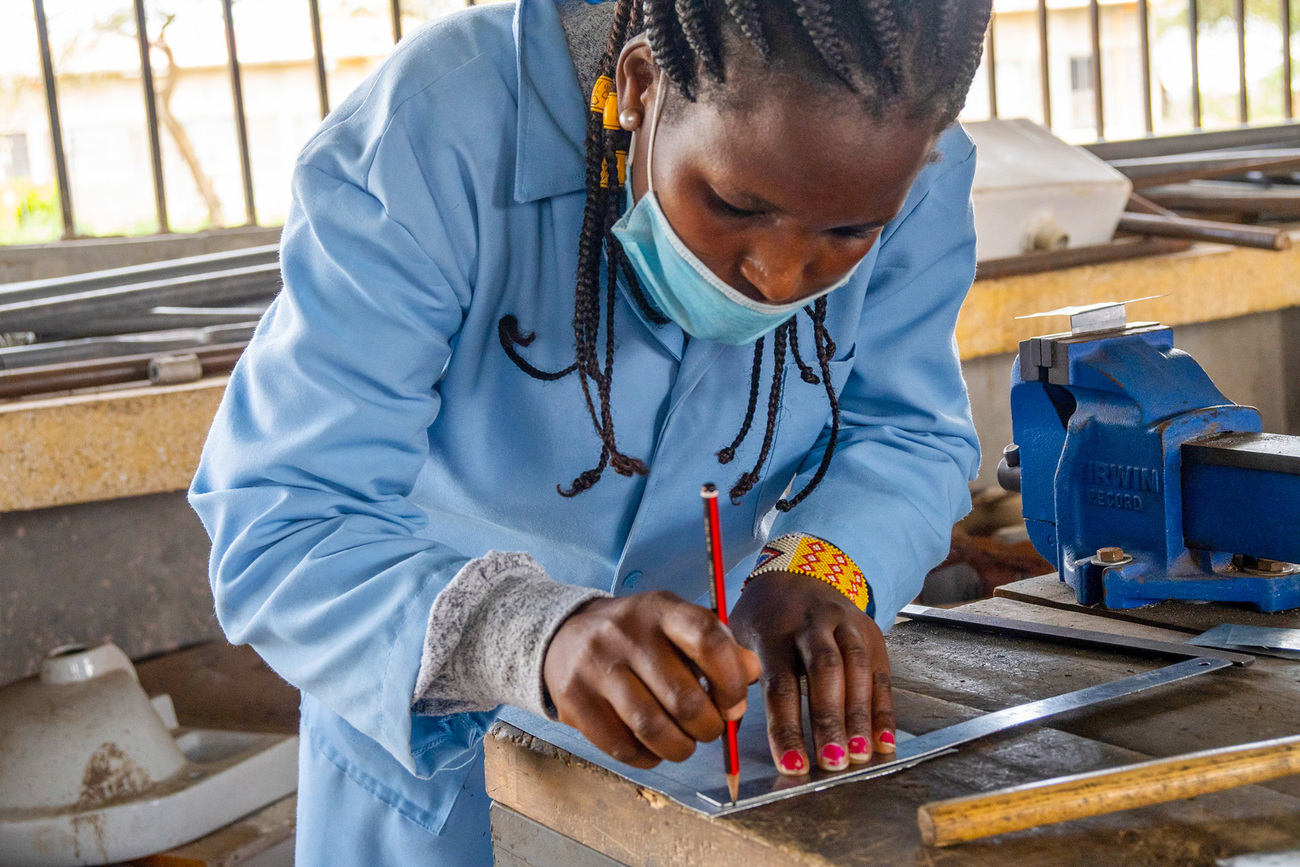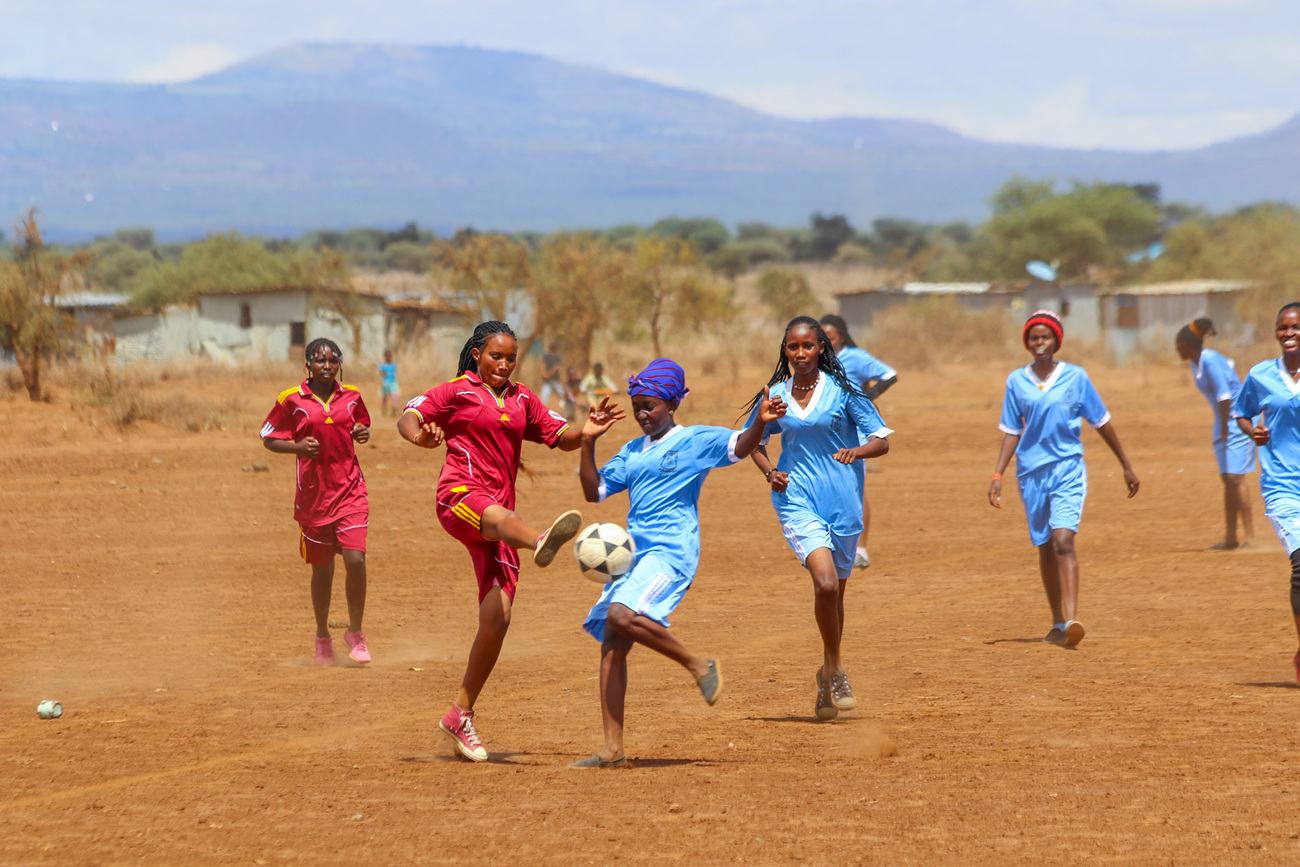Jenga Mama – Kenya
Empowering women to protect wildlife in Kenyahow Janet’s plan to become a plumber will help wildlife in Kenya
how Janet’s plan to become a plumber will help wildlife in Kenya

Out of 60 women from Amboseli, Kenya who are learning how to set up micro-enterprises through the Jenga Mama project, Janet Sabore is the only one who chose plumbing as her future profession.
“Where I come from, we do not have many plumbers and I will be receiving many calls for plumbing work. I am guaranteed a source of income,” says Janet, currently a student at the Maasai Technical Training Institute (MTTI) in Kenya.
That income will be important for her family, which, like many others in Amboseli, has traditionally relied on farming. Living close to Amboseli National Park—home to elephants, zebras, giraffes, wildebeests, lions, cheetahs and other wildlife—means some of these animals frequently wander into Janet’s community, destroy precious crops and kill livestock. In communities like these, wildlife can easily become viewed as an enemy, and people may resort to killing the animals that harm their livelihoods.
Part of the solution is to help members of the community find more sustainable sources of income. So, in 2022, the German-based foundation Margarete-Breuer Stiftung (MBS) began funding the Jenga Mama (Swahili for Empower a Woman) project, which was developed jointly by MBS and IFAW and implemented by IFAW.
training, support, mentorship
The 60 women participating in the project receive one year of vocational training, one year of support to help them establish a business, and one year of mentorship and follow-up as they settle into their new professions.
But being part of Jenga Mama requires big sacrifices. The three schools where they are completing their training—the Isinya Vocational Training Center, the Namelok Vocational Training Center, and the MTTI—are far from many of their villages.

For Janet, a single mother, it’s nearly 200 kilometers (a four-hour journey) from her school to her home. “The distance is long and it would cost a lot to visit on weekends,” she says. She prefers that her mother, who is caring for her eight-year-old daughter and four-year-old son, uses the money to buy food for the children and pay their school fees.
Instead of going home, Janet spends much of her free time visiting a children’s home near her vocational school.
“I do miss my family and especially my kids, but I am doing this for them.
encouragement from Team Lioness
A highlight of the project was this past April, when the women and their families gathered for a sports and mentorship day.
“That was one of the best days as it has helped us get to know each other, since we are in different schools,” Janet says. “Running around playing football and netball has helped ease the school routine and busy schedule.”

The women also had a special treat on sports day—a chance to meet the members of the only all-women ranger unit in East Africa called Team Lioness. “We had only heard about them,” says Janet.
“Meeting the rangers has motivated me to keep going strong and become a woman who depends on herself economically, like them, especially because we all come from the same community.”
Plumbing is an unusual career choice for a woman from the highly patriarchal Maa community, where one might be more inclined toward food and beverage production. “But I already know how to cook,” Janet says with a smile. So far, she has learned how to install roof gutters to trap rainwater and how to unblock clogged sinks and drains.
from farmer to plumber to wildlife champion
Rather than coming into conflict with wildlife, a boost in socio-economic status will enable these women to become champions for wildlife conservation within their communities by giving them greater opportunities to participate in governance and decision-making with local community leadership.
Experience has shown IFAW that communities are more likely to engage in wildlife protection programs if IFAW’s work benefits the people of the community, too—even if the benefits are indirectly linked to wildlife. When combined with the conservation work IFAW is already doing alongside the community, the Jenga Mama program is helping create an environment where animals and people can thrive together.
Related content
Our work can’t get done without you. Please give what you can to help animals thrive.